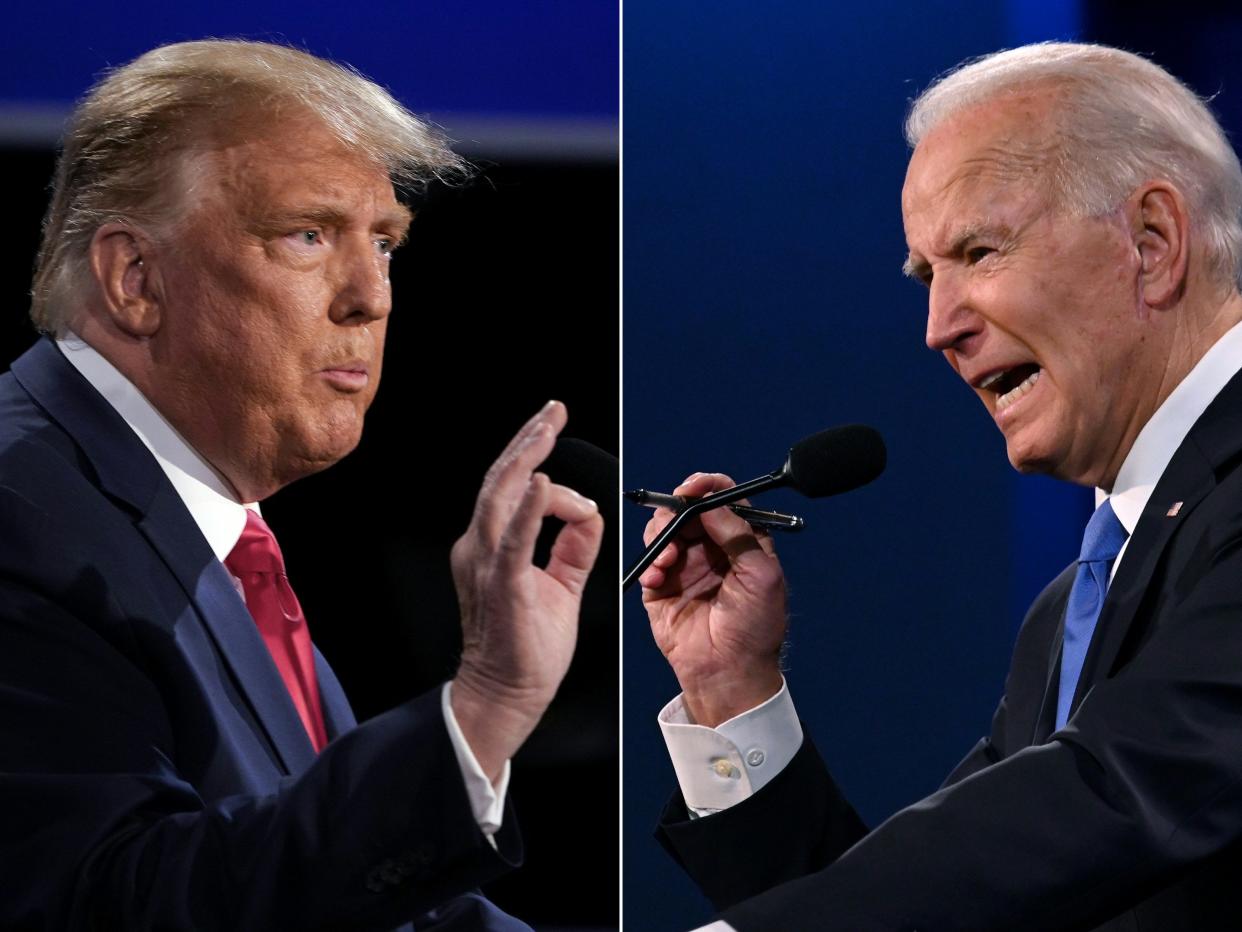Guest opinion: If I were President ...

The recent address by President Biden at Philadelphia’s Independence Hall has drawn a lot of criticism. Biden’s remarks showed an appalling degree of contempt for a great swath of the American people: those who support Donald Trump.
I would call his approach very unwise, politically. Casting potential voters as enemies of the nation, as Biden did, can be off-putting, to say the least.
It’s also hypocritical, considering this is the man who insists he thinks of himself as President of all Americans.
But Biden’s speech did set me to thinking about what I would say to the American people at this moment in history if I were President.
I would focus on the decline of society’s moral state. I’m not talking about the all-too-obvious dissolution of sexual mores (that’s a topic for another essay). Rather I mean people’s daily behaviors.

You don’t have to look far to spot the decline. It’s evident in a million ordinary things, for instance, how we don’t seem to care about anyone else around us. You can see this in such a common practice as texting while driving.
This is a self-centered, distracting, and extremely dangerous activity that puts the lives of others in peril. It happens all the time, and it demonstrates how little respect we have for those others.
A more direct indicator of disrespect would have to be online commenting (which likely accounts for a significant portion of all that texting). Since most of us don’t have the sort of media megaphone that’s available to a President, it’s the primary way we express our opinions these days.
I’ve fallen into the habit of perusing Twitter. I’ll admit this isn’t always a productive use of my time, but it is highly illuminating. I’m shocked at the things people will say about others — mostly, I assume, about those they don’t even know.
The language is vulgar, belittling, often threatening. It rarely demonstrates any sort of thoughtful reflection on views that have been expressed. In its own way it shows as little respect for fellow human beings as texting while driving.
It even raises questions about how much respect people have for themselves. Crude language and belligerent, half-formed thoughts don’t speak well of the person expressing them. Yet there seems to be very little concern about such embarrassing self-revelation.
But this is the level of discourse that’s common on social media, and other forms of online communication as well, even email.
From time to time, in the course of discussions about personal conflicts, people will share their electronic correspondence with me. I’m often taken aback, not only by the disrespect that’s evident, but by the violence threatened by “keyboard cowboys,” who would never speak so boldly face-to-face, but feel brave when they’re at their computers or cell phones.
Whether in tweets, comments about Facebook posts, or their email messages, people seem to have concluded that freedom of speech is unlimited in the online realm. The old rules of civility don’t apply. Propriety and politeness be damned!
(This unfortunate trend was vividly illustrated by the many disgusting statements about the death of Queen Elizabeth. Her demise was actually applauded by people who considered her a symbol of “British imperialism.” One tweet, quickly deleted, expressed hope that she had passed her last hours in agony.)
We hear much fretting about how divided society has become, and no doubt it is. I think the sort of moral decline I describe — this tendency to disregard, or even to demonize, those with whom we don’t agree — is a main source of that divisiveness.
If I were speaking as President, I would urge that we think carefully about the hurt and anger our words cause, and adopt a better approach. And I’d make my suggestion using an old baseball expression: the “small ball.”
This refers to little things that can make a big difference over time. They’re the things everybody can do to restore a sense of unity, and to lessen the damage of those moral flaws infecting the body politic.
I’m talking about awareness of other people’s feelings, consideration of their humanity, their dignity, even their safety (especially as regards the texting-while-driving issue). I realize this might not seem like a very ambitious proposal, given the extent of the problem. After all, in baseball everybody loves a home run.
But you’re more likely to win a game with singles and doubles.
If I were President, I’d offer this advice generally. Since I’m not President — and since it applies just as much to political speeches as it does to online communication — let me offer it to the man who currently occupies the White House:
Watch your words, Joe. People who disagree with you are your adversaries, not your enemies. And they’re all Americans.
This essay is based on a homily delivered by Fr. Orsi. It can be viewed online at: https://www.youtube.com/watch?app=desktop&v=apteJa6ayt8
A priest of the Diocese of Camden, New Jersey, Rev. Michael P. Orsi currently serves as parochial vicar at St. Agnes Parish in Naples, Florida. He is host of “Action for Life TV,” a weekly cable television series devoted to pro-life issues, and his writings appear in numerous publications and online journals. His TV show episodes can be viewed online at: https://www.youtube.com/channel/UCyFbaLqUwPi08aHtlIR9R0g
This article originally appeared on Fort Myers News-Press: The President of the united states needs to take a look in the mirror
